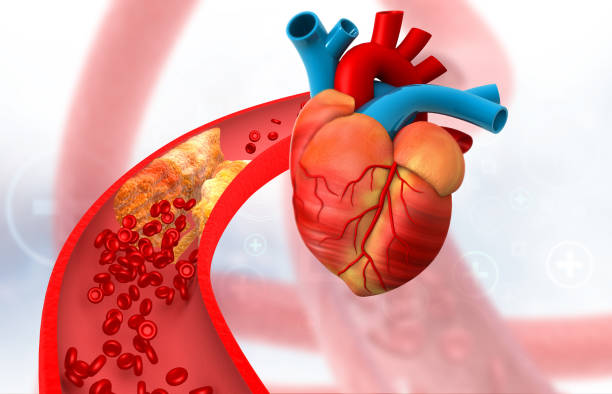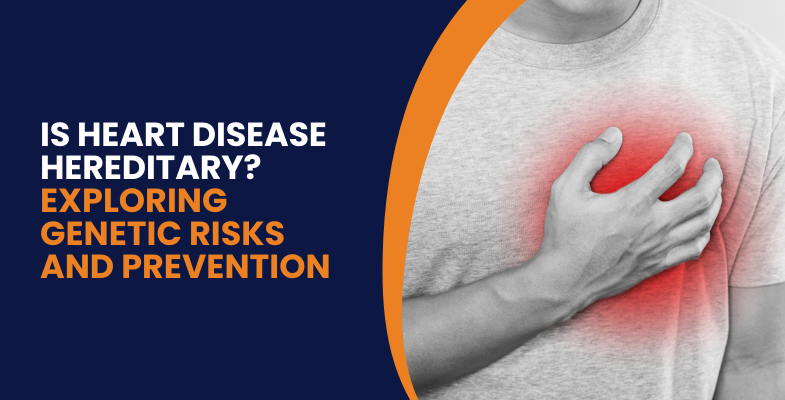The human heart beats over 100,000 times daily, providing each cell with life-sustaining blood. Yet, with all this endurance, heart disease claims the lives of millions of individuals worldwide. Cardiovascular disease is responsible for nearly 17.9 million deaths worldwide annually, reports the World Health Organization, while cardiac diseases account for nearly one out of every four deaths in India.
With numbers this high, it is natural for people to ask … Is heart disease hereditary?
Dr. Rakesh Tirmale, a seasoned Cardiologist at Terna Hospital, Navi Mumbai, explains:
“Genetics strongly influence the way our bodies respond to heart disease. If a close family member has suffered from cardiac illness, your own chances of facing similar problems are significantly higher. That said, hereditary risk is not a sentence. Early detection, timely medical check-ups, and healthy lifestyle choices can dramatically change the outcome.”
At Terna Hospital, patients benefit from advanced diagnostic tools, compassionate care, and expert guidance that address both genetic and lifestyle factors. Understanding hereditary risks empowers you to make informed choices for lifelong heart health.
Wondering what exactly your DNA has to do with your heart’s wellbeing? Let’s dive deeper …
Understanding the Role of Genetics in Heart Disease

The genetic code we inherit from our parents is like a blueprint that determines many aspects of our health—including how our heart functions. While lifestyle choices such as diet, exercise, and stress management play a significant role, certain genetic variations can predispose people to cardiac conditions.
For instance, if your parents or siblings developed coronary artery disease at an early age, it suggests a stronger genetic component. In medical terms, this is referred to as a family history of heart disease, which is one of the most recognized risk factors.
Here’s how genetics can influence heart disease risk…
Inherited Cholesterol Disorders: Some people inherit conditions like familial hypercholesterolemia, which leads to dangerously high cholesterol levels from a young age.
Structural Heart Abnormalities: Certain defects in the heart’s walls or valves may be passed down through generations.
Blood Clotting Disorders: Genetic mutations can affect how blood clots, increasing chances of blockages that trigger heart attacks.
Eminent Heart Specialist Dr. Tirmale emphasizes:
“Understanding the genetic risks for heart disease doesn’t mean living in constant fear. Instead, it offers an opportunity to take charge of your health earlier and more effectively than those without this knowledge.”
Concerned about your family’s cardiac history? Seek timely evaluation and counseling from a qualified heart specialist to better understand your risks.
So if genetics play such a strong role, does that mean prevention is out of your hands? Not at all.
Preventing Heart Disease When Family History Plays a Role

Having a parent or sibling with heart disease doesn’t automatically seal your fate. Research consistently shows that while genetics can load the gun, lifestyle choices pull the trigger. By being proactive, individuals with a family history can often delay or even prevent the onset of cardiac issues.
Some proven preventive measures include:
Balanced Diet – Limiting processed foods and including heart-friendly options like fruits, vegetables, whole grains, and omega-3 fatty acids.
Regular Exercise – Just 30 minutes of brisk walking five days a week improves circulation and reduces cholesterol.
No Smoking or Excessive Alcohol – Both habits significantly worsen genetic vulnerability.
Stress Management – Chronic stress increases blood pressure and weakens the heart muscle.
Dr. Tirmale, an insightful voice in cardiology at Terna Hospital, Navi Mumbai, notes:
“Individuals with a family history of heart disease often benefit from earlier and more frequent screenings. Prevention works best when combined with awareness and professional monitoring.”
But what exactly are the genes or conditions that raise your risk? Let’s uncover the …
Common Genetic Risk Factors for Heart Disease
Heart disease can be influenced by several specific genetic mutations and inherited conditions. While not every family carries these risks, understanding them helps in early recognition.
Familial Hypercholesterolemia (FH) – Leads to extremely high levels of LDL (“bad” cholesterol), causing plaque buildup in arteries.
Inherited Hypertension Tendency – Some genetic variants increase susceptibility to high blood pressure, a silent yet dangerous precursor of heart disease.
Hypertrophic Cardiomyopathy (HCM) – A condition where the heart muscle thickens abnormally, potentially leading to arrhythmias or sudden cardiac arrest.
Diabetes-linked Genes – Genes that predispose individuals to diabetes indirectly increase heart disease risk.
Dr. Tirmale, a distinguished Cardiologist at Terna Hospital, Navi Mumbai, states:
“Genetic testing can identify whether someone carries mutations linked to cardiac problems. While not every individual needs it, targeted heart disease genetic testing can be invaluable for those with strong family histories.”
Curious about whether genetic testing is right for you? Speak to a healthcare professional about tailored screening options for cardiac health.
Knowing your risk factors is one thing—but how do you actually live with them without constant worry? Let’s explore.
Managing Your Risk When Heart Disease Runs in the Family
If your family tree reveals multiple cases of heart disease, you may feel anxious. But medical science offers many ways to stay ahead. Managing risk involves both lifestyle choices and medical support:
Regular Check-Ups – Annual health screenings help track blood pressure, cholesterol, and blood sugar.
Early Screening Tests – For those with a family history, tests such as echocardiograms, stress tests, and coronary calcium scans may be recommended.
Targeted Medication – Doctors may prescribe cholesterol-lowering drugs (statins) or blood pressure medications earlier for high-risk individuals.
Personalized Lifestyle Plans – Nutritionists and cardiovascular thoracic surgeons can work together to create customized diet and exercise programs.
Dr. Tirmale, a dedicated Cardiologist at Terna Hospital, Navi Mumbai, advises:
“If heart disease runs in your family, do not wait for symptoms. Proactive monitoring and timely medical intervention can prevent serious complications. Living with inherited risk does not mean living without hope.”
Still have lingering questions? Let’s address the most common ones patients ask.
How much does genetics contribute to heart disease?
Genetics can account for 20–30% of heart disease risk, however, environment and lifestyle often determine whether these genes are activated.
Can heart disease skip generations?
Yes, it can, certain genetic characteristics are recessive, so they may not surface in one generation but may return in the next.
What age should I start worrying about heart disease if it runs in my family?
If your parents or siblings developed heart problems before age 55 (men) or age 65 (women), it’s best to begin screening in your 20s.
Is there a cure for genetically inherited heart disease?
There is no “cure” for inherited conditions, but management strategies—from medication to surgery—can control symptoms and reduce complications.
How often should I get checked for heart disease if I have a family history?
Annual check-ups are recommended, but in high-risk cases, doctors may suggest more frequent evaluations.
: If you’re uncertain about your genetic risks, consult a trusted cardiologist to create a preventive plan that safeguards your future heart health.
References:
https://cabellhuntington.org/services/orthopedics/joint-replacement/smart-knee-implant
Disclaimer: The information shared in this content is for educational purposes only and not for promotional use.

